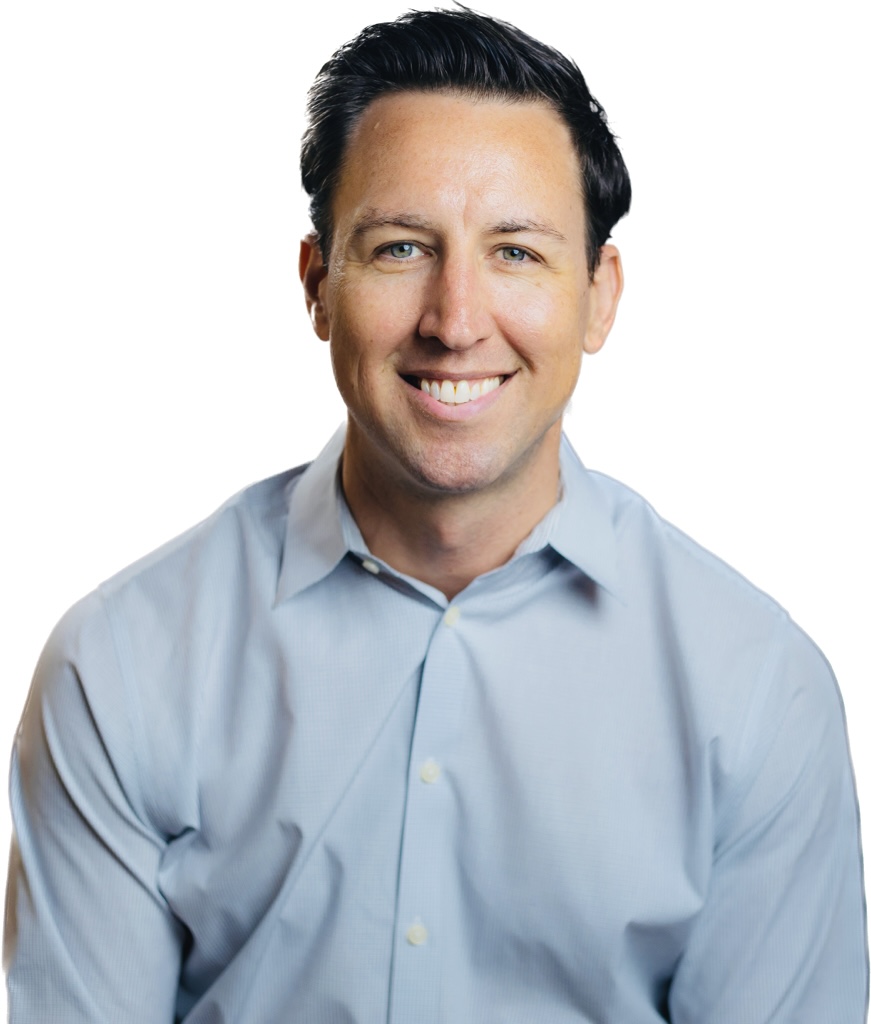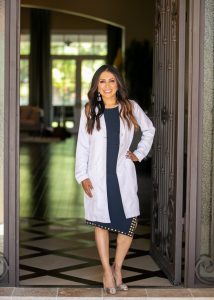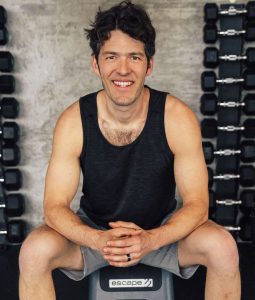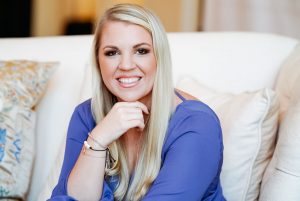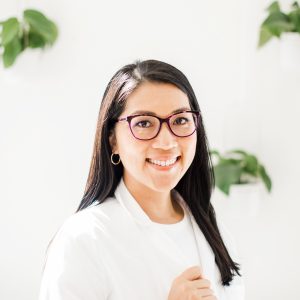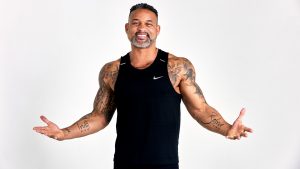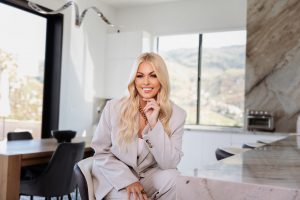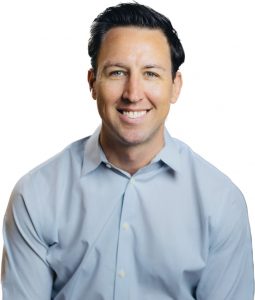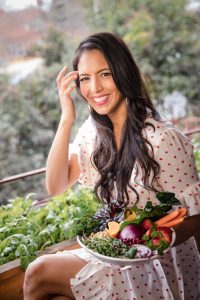SHAWN STEVENSON: Welcome to the 2023 Family Health and Fitness Summit. We’ve got a special treat for you today. We’ve got Dr. Will Bulsiewicz. Now, listen, I speak your praises a lot. I talk good about you behind your back all the time. Your dedication through your conventional education as well and your practice and your service and the crossroads that you met, eventually, and your transition into being such a vocal teacher of wellness and wellness for the entire family, being that you are a family man, you have kids yourself as well. And it’s just been an incredible thing to witness. And so to kick things off, I would love it if you share a little bit about your background and a little bit about your family life as well.
WILL BULSIEWICZ: Yeah, I would love to honestly. This is such a great opportunity for us to talk about this, because in my personal world, I define myself as a dad and as a husband before I think of myself as a doctor or an author or the things that people know me by. And that’s like the stuff that I care about the most and it dominates my mind more than anything. So it’s really refreshing to me to have the opportunity to come and talk to you about this. And I think this is one of the ways that you and I connect and we see the world through a similar set of glasses because we’re both dads and that’s clearly important to us. So look, I don’t know how I got to this place. It’s kind of weird. I grew up with a dream of being a medical doctor that literally started when I was probably 14 or 15 years old, like a freshman in high school, and I really busted my tail like the entire way to make that possible. So when I was in college, I would have loved to have joined a fraternity and had more fun with my friends, but I was studying and trying to basically make my way through the gauntlet that is the pre-med curriculum, where essentially the way that they did this, they would eliminate students every single semester.
WILL BULSIEWICZ: Basically, it was graded on a curve and if you weren’t at the very top, you’re out, and that’s the end of it. So anyway, I busted my tail all the way through, busting my tail. I’ve always been a hard worker and the thing about it is that I got into my 30s and all the sacrifices that I made in order to facilitate my career had to do with my diet, my lifestyle, my wellness; I wasn’t taking care of myself. And I paid the price and I always thought of myself, I played three sports in high school, I was the captain of two teams, I always thought of myself as an athlete and I specifically remember looking in the mirror in my early 30s and being like, I don’t recognize that guy because he’s not an athlete, the gut is like hanging out and things clearly need to change and the thing that changed for me that really changed my life and led me above all else to where I am today actually wasn’t me, it was meeting my wife. And so I remember specifically we were at this… It was our first date and we’re at this restaurant. I was in Chapel Hill, North Carolina at the University of North Carolina for my GI fellowship and we’re at this restaurant called Acme and I’m getting the pork chop and that’s like my usual thing and she just ordered something completely different and I had never like been around someone who did this before, but basically she just ordered a bunch of sides.
WILL BULSIEWICZ: And the thing about it was that I noticed, here I am struggling with my health issues. Now, let me just say I don’t actually think it was the pork chop that was the cause of my health issues, I think it was actually the fast food that I was eating like twice a day, but nonetheless, here’s this person who she eats differently than I do and she looks amazing. She’s in great shape, seems like she’s healthy and she’s not even trying. And she’s enjoying her food and she eats until she’s full, she eats the whole meal, she cleaned her plate; she was not restricting. And it just opened my mind to the possibility, it may sound ridiculous at this point, but maybe going to Hardee’s for dinner twice a week is actually a problem. Maybe the hot dogs that I would eat after school almost every single day in high school, ’cause my friends and I we would hang out and we either play basketball or we would play Nintendo 64 and eat hot dogs, maybe that’s a problem. And so anyway, Shawn, fast forward to here we are, I’m in my 40s…
WILL BULSIEWICZ: And mid 40s and I am in the best shape of my life and I feel younger in my 40s than I did in my late 20s or my early 30s, and I attribute that to the changes that we’ve made. But really the changes that we’ve made are not about me. The changes that we’ve made are about us and our whole family and we do it together and we lift each other up. And I think that that’s kind of the secret sauce to making this possible, is you have to include other people in your process.
SHAWN STEVENSON: I love this so much. This is so good. And also the connection, the relationship aspect being a catalyst for you, you know, your amazing wife being that bridge from getting from where you were to where you are today, that speaks volumes, and just being able to, of course, with that collective and your experience, it’s so special because you’re speaking at this not from a level of theory but from a real practical real-world application of these things. And in your practice, and if you could talk about that, your specialty, gastroenterologist, all right, so you’re studying the gut, you’re studying this immaculate amazing system of being able to digest, assimilate, eliminate food and all manner of things from from our mouth to the end of the tunnel. And what’s so fascinating about this is that spending so many years in education and in practice, you’re one of the people who’ve really come forward to say, you know what? I work, my work is focused on the organs that deal with food, that deal with the interaction between food in our human bodies and yet we don’t learn much about food in our conventional education. Can you talk a little bit about that part of it?
WILL BULSIEWICZ: I have learned so much more since I actually completed my formal medical education, which is crazy because I spent 16 years doing that. And what I’ve learned to me is actually more important because I can know physiology and pharmacology and all these things. And yes, that is very relevant to my work as a gastroenterologist and the ability to sit down with a patient in a room, diagnose them and then treat them properly. Yes, those things are necessary. But at the end of the day, why are we waiting until a person is actually in that room to intervene? Why are we waiting until they’re sick to try to fix them? Why don’t we start today? And the way that we do that is by basically building out our patterns, our habits, our lifestyle in a way that actually nourishes and supports the body, reduces inflammation, allows us to live longer, healthier lives with lower risk of disease. It’s not that it completely eliminates disease; that would be a false promise. But what it does do though, is it puts you in a position where to the best of our ability, we are in a position to thrive and do well. And yes, medications and doctors, they are there when you need them, but that shouldn’t actually be the first line approach. The first line approach should be the things that we do from a diet and lifestyle perspective.
WILL BULSIEWICZ: And so to answer your question, Shawn to me I learn more every single day about this amazing organ, the gut, these microbes, that outnumber our human cells, and to me are the most powerful organ even though it’s invisible and you can’t see it on a CAT scan, the most powerful organ for human health because it is access to nutrition, our metabolism, our immune system, our hormones, our mood, our brain health, our cognition, the expression of our genetic code. All of these things come to one place and it’s centered there and it’s invisible and you can’t see it, but that to me is where health care actually needs to be. We need to be more focused on helping people to fix this, not to take this medication that reduces your irritable bowel syndrome.
SHAWN STEVENSON: Yeah. I would love to talk specifically about gut health for families, for kids. Can you talk a little bit about the current state of affairs, what you’ve seen as a practitioner? And of course, you’re a published scientific researcher as well. What is the current state of affairs? And then let’s transition into what is some of the things that we need to be doing to support our gut health as parents and also for our kids, which is so important?
WILL BULSIEWICZ: If you look at the conditions that are associated with damage to the gut microbiome, and these associations are powerful, I can unpack this a little bit more in just a moment. Conditions, it could be metabolic conditions, for example, obesity, type 2 diabetes. It could be immune conditions where the immune system is confused, like allergies, like asthma, eczema, food allergies or autoimmune conditions. What we see in our kids, and it’s depressing, and I mean the statistics, like many of them are in this book, you put them in there. For example, childhood obesity that is skyrocketing since when you and I were kids in the early ’80s. These allergic conditions that are skyrocketing, autoimmune conditions. Some of them have gone up 500% in the last 50 years. That’s ridiculous. And all of these things actually do come back to the gut microbiome. And let me share an example of the evidence that we are now seeing, there’s emerging evidence that is making this quite clear to scientists. So they had a longitudinal study. Now I’m not a pediatric gastroenterologist, but I pay attention to what’s happening in the space because this is part of me building my complete understanding of lifelong health, including with the microbiome, including with the gut health.
WILL BULSIEWICZ: And so they had a study where they followed kids from birth to age five, and basically along this study, longitudinally, they’re routinely checking in with these kids and they’re curious about whether or not they will develop allergic conditions. Now, the allergic conditions they were looking at were eczema, asthma and food allergies. And what they discovered, so they did microbiome sampling at 12 months of age. Now, to be clear, when they took these microbiome specimens, they did not… These kids did not have a diagnosis of eczema, asthma, and food allergies, this has not been diagnosed yet. So they take a poop specimen at 12 months of age and they discover that they can predict who is going to ultimately develop these allergic conditions. And the changes that existed within a person, whether they developed asthma, eczema or food allergies, like these are different conditions, like asthma, lungs, eczema, skin, food allergies, gut, right? These are different organs, yet the part that ties them together is the immune system being confused. And they discovered that in all three cases the changes in the gut microbiome were actually quite similar. And there was… To be clear, there was a loss of the anti-inflammatory short-chain fatty acid producing microbes, and these are the microbes that help us to digest and process our fiber and give us the benefits that we get from dietary fiber.
WILL BULSIEWICZ: Adults are starving for more fiber in their diet, and so are our kids. If 95%, and this is the statistic, if 95% of adult Americans are inadequately consuming fiber, what do you think the statistic is among children? It’s just as bad if not worse, because we’re not going to hold our kids to standards, nor will they actually do something different than what they see their parents doing. So anyway, the point from my perspective is that we’re seeing this explosion of these childhood conditions and there is a tie back to the gut microbiome, the research is becoming increasingly clear, and we can’t separate what we eat from what actually is happening within our gut microbes.
SHAWN STEVENSON: Wow, I really want everybody to get this point. So often we don’t connect the dots. And so your work has been so instrumental in us getting educated about this interface between our immune system and the gut and all of these kinds of outward expression of symptoms, whether it’s asthma, whether it’s… And again, I grew up hospitalized with asthma annually, my little brother oftentimes each season he’s ending up in the hospital. And for me, I “grew out of it.” When I changed the way that I was eating, I no longer had asthma and seasonal allergies and all the things in over 20 years. And so if you could, can you talk a little bit more about that interface? Why is the immune system and the gut so closely connected?
WILL BULSIEWICZ: We have an organ inside of our body, which is by the way massive, but microscopic, so hard for us to see, and what I’m talking about is the gut barrier. The gut barrier literally is 7000-8000 square meters, carpeting the entire inner lining of our intestine. By the way, our intestine for most of us is like 25-30 feet long. So you have this massive interface. I’m saying 7000-8000 meters squared and every single micrometer counts because in those places, inside the tube of the intestine is where the microbes live, and by the way, there’s microbes everywhere. It’s not just the colon. They’re most concentrated in the colon, but through the throughout the entirety of our intestine there are microbes, mostly bacteria, inside the tube of our intestine and separating those bacteria, 38 trillion of them, from 70% of our immune system is a single layer of cells that is so thin that I could be holding it right here in front of the camera before everyone and you wouldn’t be able to tell because it’s invisible to the naked eye, it’s that thin. It’s one layer.
WILL BULSIEWICZ: And the single layer of cells has, like the, one of the most important if not the most important jobs in the entire body. I mean, I don’t wanna… I mean the heart and the brain, there’s other important organs, but gosh, like when it’s intact, it allows us to keep our environment separate from the immune system. And you have to understand that, Shawn, if we think about how we protect our body from the environment from the outside, there’s three layers of protection that we’ve built through… I mean you could say human history is three million years of evolution, but actually this starts far before that, like immune systems were evolving for billions of years.
WILL BULSIEWICZ: And so there’s three separate layers of protection that we have that defend us, defend our body. The first is our microbes. Our microbiome is the first layer of defense in terms of protecting our body. Okay? And they can actually get rid of a lot of the pathogens or problems that exist, whether it be in our diet or whatever it may be. The second layer is this gut barrier. When the gut barrier is intact, it keeps your body and your bloodstream safe and protected from whatever it is that’s in your environment, which by the way is what’s passing through the intestine, because that is where we’re interacting with the outside world, is within our gut. Deep within our gut is where we actually interact with the world the most. Okay? So the second layer is this gut barrier, and the third layer is the immune system.
WILL BULSIEWICZ: And the immune system does not step up and do anything unless the barrier has been broken. And when the gut barrier is broken, then you actually are creating these channels, which people call this leaky gut, or we could call it increased intestinal permeability. But we’re talking about the same thing because things are able to actually start to pass across the gut barrier, and if they’re not stopped, then they will get into the bloodstream and that could lead to a deadly infection or something else. This is where the immune system steps up, and that is inflammation. Inflammation is the response of your immune system to a threat, something that it says, I gotta get rid of this. So when our gut barrier is intact, the immune system doesn’t have to actually do that because stuff is running into a wall.
WILL BULSIEWICZ: When the gut barrier breaks down, we have opened up the possibility and now things can get across. And by the way, a quick little comment. So we talk about a confused immune system. How does this develop? So we’re talking about autoimmune diseases or allergic diseases. Well, actually it’s been very, very clearly shown that many of these conditions can develop after an infection. And the reason why, and again, this is not something I was taught in medical school. I learned this after studying these microbes, there are microbes that are trying to figure out a way to infect your body. They’re pathogens. And one of the strategies that they’ve evolved, because they’ve existed for billions of years, so they’ve had a lot of opportunity to try to figure out ways to get access to your body and evade your immune system, is that the microbes will actually create proteins that look like human proteins.
WILL BULSIEWICZ: And so if they can get across, if the gut barrier is broken, again, if the gut barrier is intact, they’re not getting in anyway, but if the gut barrier is broken and they can get across, your immune system may not recognize them or by the time it recognizes them, it’s kind of late in the game. And so now these proteins that look like human’s start to confuse your immune system and eventually at some point your immune system says, oh, those proteins are the problem. But here’s the issue. You have those proteins, not just these bugs, you have these proteins and this is how we develop things like autoimmune conditions. So, from my perspective, this is all intertwined because if you want a healthy immune system, you need an intact gut barrier. And if you want an intact gut barrier, you need a healthy microbiome. When you have a damaged microbiome, that’s when the gut barrier breaks down.
SHAWN STEVENSON: Absolutely. And the person that we refer to as the father of modern medicine said, Hippocrates, all disease begins in the gut long, long ago.
WILL BULSIEWICZ: Amazing.
SHAWN STEVENSON:And whether it’s… Right, it’s just like how on earth did he know that? Because today, whether it’s a thyroid issue, whether it’s an autoimmune condition, whether it’s an issue with asthma or eczema, the list goes on and on. What I wanna point people to today, especially for our children, if we’re seeing the outer manifestation of symptoms, let’s think first about the gut, let’s think about gut health because this is really the interface, this is the frontline interaction between others and you. And so oftentimes, and this is why your work is so important, is healing the gut. We often see a dramatic reduction in these outward symptoms, again, whether it’s a thyroid issue, whether it’s a cognitive issue, the list goes on and on because this is real talk.
SHAWN STEVENSON: This is where the party is often happening, is in the gut. And so with that being said, let’s talk about some practical strategies for families. Because in our modern society, in particular just the last few decades, we are, and this is just because of culture, getting our kids onto ultra-processed foods in infancy. Some of my first foods were like a McDonald’s french fry in my hand or those like Gerber cookies, you know, then I do the same thing for my kids. And you mentioned this earlier about the diversity of our bacteria and being greatly diminished in adults. And that’s it, according to the data, it’s gonna end up being worse for our children because children are eating far more ultra-processed foods than adults today, which is crazy in and of itself. And so we’re gonna be missing out on those vital inputs. You mentioned the F word, fiber, you mentioned fiber earlier. So let’s talk about how can we build more resilience with our gut health, improve the health of our microbiome. What are some tips for parents?
WILL BULSIEWICZ: Okay, let’s take the principles that I teach to adults and let’s apply them to a family. And the nice thing is these are not theoretical. These are the things that we literally do in our family. So, number one, you’ve heard me say this many times, I’ve talked about this on your podcast, I wrote about this in my books. In the American Gut Project, which is the largest study allowing us to connect what’s happening with the gut microbiome to diet and lifestyle, they found that there was one factor above any other factor that was the most important thing in terms of predicting a healthy gut, and that was the diversity of plants in the diet. Now, you’ve written about this, you wrote about this in Eat Smarter. And your new cookbook, Eat Smarter Family Cookbook, like this is a very, very plant-heavy, plant-diverse cookbook, which is a wonderful thing ’cause you can literally just cook from the book and be supporting your family.
WILL BULSIEWICZ: We wanna get a variety of plants into our diet, but we have to keep it real. If you are not going to eat the kale salad, your kids are not going to want to eat the kale salad either. And it’s not that you should eat that salad and not enjoy your food and then think that somehow that means that your kids will do that. You need to find food that everyone enjoys. And there’s ways to do this that make complete sense. I’ll tell you what we do. And this is like, if you take one thing away, this is what I would offer to the parents out there. You should make a smoothie every morning for the whole family.
WILL BULSIEWICZ: And the beauty of making a smoothie is that you have control over the flavor profile so you can make sure that it tastes great, but you also have control over what’s hidden inside that blender that your kids have no clue what they’re putting into their body; they just know that it tastes good. My wife will make a smoothie and I’m happy to kind of share what we do. There’s also tons of smoothie recipes out there, you have smoothie recipes, but the point is that the same smoothie can be poured into a glass for my wife and I, for my older kids who are nine and seven, and for our baby who’s a year-and-a-half old. And we just, it’s just different glasses, but it’s the same smoothie. So, what do we do?
WILL BULSIEWICZ: We will take a banana. And by the way, we can talk about bananas. I don’t know if you saw the new study about that. We can talk about that if you want to. But we take a banana, some organic soy milk, that by the way, we have a specific brand where there’s two ingredients, water and soybeans, that’s it, there’s no sugar. So organic soy milk and blueberries and broccoli sprouts and ground flaxseed. We’ll usually throw some walnuts in there too. All right? And you blend that up and it tastes like a blueberry smoothie and everyone is happy and your kids don’t realize that they’re consuming all this wonderful food that’s actually quite nourishing to their gut microbiome. Now, if we want to add a second thing real quick, there was a study done that I know you know, out of Stanford University by the Sonnenburgs who are microbiome researchers…
WILL BULSIEWICZ: And Christopher Gardner, who is a clinical trialist, someone that I work with actually at ZOE. And they were looking at fermented food and the effect of fermented food on gut health. And it was a clinical trial. So they asked people who were not consuming fermented food to add fermented food to their diet. And the amazing thing is that eight weeks after doing this, they actually increased the diversity within their gut microbiome. Now that’s amazing ’cause that’s not population research. And let me say, I’m a believer in population research, I have a background in epidemiology, this is something that I have a master’s degree in, but I’m not comparing a population study to something like this. This is powerful. This is more powerful because it’s an interventional study and we’re actually demonstrating that we can achieve the effect that we’re striving towards.
WILL BULSIEWICZ: So, I encourage fermented food in the diet and the smoothie can be a wonderful place to sneak that in. And an example of that would be kefir or yogurt. And you can throw that into your smoothie. People don’t know that it’s… The kids won’t even know that it’s there. Frankly, kids might love yogurt anyway. And if they do, then that can be another thing that you serve for breakfast that’s clearly better than Cheerios. But nonetheless, that’s another thing that I would focus on is like, let’s get more diversity in the diet. Let’s try to sneak some fermented food in the diet. And one of the ways to set up your day for success is a smoothie that incorporates these aspects into it.
SHAWN STEVENSON: Oh, this is so good. And that’s another thing, we haven’t even talked about that during this summit. And I’m so grateful you brought this up because this is a real-world thing that we did. My youngest son just mentioned two days ago, he just randomly brought up, he was just like, do you remember that little blue cup that I used to drink out of? And it’s probably been, I don’t know, six years since he’s had this little blue cup, but that would be his little smoothie cup. Of course he would have water or some things like that in there, but that was his little smoothie cup. And this is a way that we were delivering this information into his body. And you just shared this. This is an excellent way that we can add in all these different bits of data.
SHAWN STEVENSON:But also another huge understanding is that we’re taking on properties of these foods that we’re eating, whether it’s an ultra-processed food or whether it’s the microbiome of that blueberry or the microbiome of those sprouts. You mentioned adding sprouts in there, which is so cool. But I love this other added layer of being able to add in some ferments in the form of kefir, in the form of yogurt, things like that. And by the way, there are a ton of different options, there’s plant-based options, there’s cow, there’s goat. But also I’m grateful I got the chance to work at a university for so many years because I got to work with people from all over the world. And you see like, real talk, I’ll meet some people that they would have, you know, camel kefir or all these other, these different types of kefir that I wouldn’t have even thought about. And today we also have access, you know, coconut kefir for example is pretty tasty. But just being able to deliver these things in a delicious way for everybody to be able to get these inputs is super powerful. Now, I cannot have you, without asking you about this, what are some things we want to be mindful of avoiding to protect our gut health and the gut health of our kids? What are some of the common insults that we might be getting exposed to, and we might not be realizing it?
WILL BULSIEWICZ: If you’re gonna summarize it in a simple way, it’s ultra-processed foods. Because there’s just not a lot redeeming there and there are a lot of problems. They tend to be a source of, well, first of all, the fiber is typically stripped out of the food. But in addition, they’re typically a source of added sugar or artificial sweeteners. And one of the things that I dug about the new book that you did, ’cause it really helped to bring clarity, is you broke down food categories into different levels. So like scary, sufficient, or smarter. And that actually is exactly the way that we should be approaching. Like there’s a lot of arguing about nutrition on the internet. Yet the interesting thing about it is many times we’re talking about the same thing in the same way.
WILL BULSIEWICZ: And it’s just a matter of where you draw the line, right, like where you draw the line in terms of what you consider good versus bad. But yet, if we were to make comparisons this versus this, that’s actually what really matters. It’s the ladder and we wanna climb the ladder, ’cause that is elevating dietary quality. And when we elevate dietary quality, we get benefits. And this is consistently true across all different types of foods. So yes, there are bad plant-based foods, they’re ultra-processed, right? There are bad animal products. And are there healthy animal products? Absolutely. Like kefir, we just talked about it. So there are… The bottom line is that we ultimately want to strive to elevate our nutritional quality. I think that your book really helps to make that clear in how we approach that issue.
WILL BULSIEWICZ: And what I really worry about with our kids is the amount of added sugar. But yet like sometimes we’ll be like, oh, well then let’s get the artificial sweetened one. And like that to me is not actually better and people should know, you mentioned in the book the effect of artificial sweeteners in terms of our, how they affect our brain and our desire for more sweet food. But the other thing is they have a profound effect on our microbiome and in a way that’s actually problematic, where just because it has zero calories doesn’t mean it’s actually good for us. It actually is creating a microbiome that predisposes us to obesity, to diabetes. You mentioned how they’re connected to diabetes, right? This is why. Because we’re actually shifting the microbiome towards something that makes us more prone to diabetes. So that to me, Shawn, when we talk about nutrition with kids, that’s what I worry about.
SHAWN STEVENSON: Yeah. Wow. Thank you again. That is the big thing. That is the big thing in our world today. And so just for us to work towards shifting that ratio of more real foods versus the ultra-processed stuff. And we’re not villainizing any of these things. It’s like those things are gonna exist. Hot Pockets are a thing out there Pop-Tarts, all this stuff is gonna exist. You might run into…
WILL BULSIEWICZ: I used to love those things. [chuckle]
SHAWN STEVENSON: Me too. I just mentioned two of my faves, all microwave friendly. And here’s the thing…
[overlapping conversation]
SHAWN STEVENSON: Right. Gonna be microwaving yourself, basically. But here’s the thing, being able to have this conversation with you, we get a peek into your life as well. And we just got a couple of minutes here and I would love to know about like what are some of the things you’ve intentionally done with your kids to create a culture of wellness in your household?
WILL BULSIEWICZ: Yeah, so I’m so glad we get to talk about this. Let’s step away from food and let’s recognize that there are things that you can do, whether you are an adult or a kid or parents with your kids. There are things that you can do to elevate your gut health that have nothing to do with the food that you’re eating. And so there’s a couple that I wanna talk through real quick. Some of them are the way that we organize our day. As a quick example, something that I do almost every single day, is I take a walk first thing in the morning, all right? So I wake up and I want that natural sunlight exposure. So I’m intentionally, many times I wear glasses, like here are my glasses right here, alright. And these have a little bit of blue light blocking.
WILL BULSIEWICZ: I take them off, right? I want that natural light exposure basically to shut down the melatonin, ramp up the cortisol, tell my body it’s time to get going, it’s time to start your day. And the amazing thing about this is that this leads to better sleep later in the day. So what you do in the morning affects your sleep that night, and I think it just sets you up for success. So I’m multitasking ’cause all of these things are good for my gut. Taking a walk outside, exposure to bright light early in the morning and anchoring your circadian rhythm are ways that we can enhance our gut health. And I do it with my kids. So my daughter is in the stroller and my son is on his bike and my oldest daughter is on her scooter. All right? So that’s how we start our day and we’re doing it as a family.
WILL BULSIEWICZ: And guess what? We’re talking about stuff and we’re checking out the decorations for the holidays and all these kinds of things. I think that sleep is really important. I think that parents need to be careful not to, ’cause your kids are going to probably wake up at the same time almost no matter what. Particularly like when the light, you know, when the sun comes up and there’s light outside, they’re gonna wake up. So I think it’s quite important to try to observe an early bedtime as much as possible with your kids. And it’s great for parents because then you get quality time with your spouse, right? Get those kids down and then you can reconnect with your spouse and that can be the best time for reconnection between the two of you. And the last thing… So that to me is actually critically important.
WILL BULSIEWICZ: Actually, before I get to my last thing, I wanna say real quick, exercise. So there’s very clear data, this summit and your book touch on fitness, and when our body is fit, it helps our gut be fit too. And there’s different forms of exercise, and different forms of exercise actually have different effects on the gut, and I won’t fully unpack that now, ’cause it would take me a few minutes, but suffice it to say that mixing in cardio with strength training is the way to go. And so guess who comes to the gym with me now? My son, who’s seven, and am I actually trying to make like him physically stronger? No, I’m putting him to work. I want him to burn some energy. But I also want him to understand that, hey, like right now he’s at an age where he admires his dad. This is what I wanna pass on to you. I want you to have a life with fitness where you prioritize this, where you make time for exercise during your day and you recognize the benefits that it brings to you. That’s a big part of it, it’s not just what he gets by physically doing it, it’s what he gets by understanding that this is the way.
WILL BULSIEWICZ: The last thing I wanna say real quick, is the most challenging cases that I’ve treated as a gastroenterologist are the people who struggle with depression, anxiety, and a history of trauma. And most of these things actually go back to their childhood, and I think that the greatest gift that we can give to our children, but simultaneously that we can receive, is actually a connected family. And you talked about this in the cookbook, the power of connection. When you are connected to other people, it reduces your risk for anxiety and depression, because you know that they got your back, and that’s what the family unit is about, and we need to be intentional about facilitating that, and part of that is establishing cultural norms within the family. Like we say to our kids all the time, it doesn’t matter what anyone else does. This is how we do it. We’re Bulsiewiczs; this is how we do it. And so our cultural norm, for example, is when we have dinner, it is a thing, we’re all gonna sit down at the table, the phones are not at the table, including me.
WILL BULSIEWICZ: There’s no phones, there’s no distractions, there’s no TV, it’s us, and we’re gonna hold hands, and we’re gonna express gratitude for a delicious meal and for one another. And then after we… For our family, we say a prayer, we say a blessing over our food, and then after we do that, we go around the table and everyone says, this is my happy and this is my sad from today, and we keep it real. But at least that, in that moment, this is the one time that all of us, we all come together. Right now it’s five. So I got three kids, but my wife is actually… I don’t know if I told you this, Shawn, we got another one coming.
SHAWN STEVENSON: Holy moly.
WILL BULSIEWICZ: Breaking news, breaking news on the Family Summit, the Bulsiewicz family is gonna be adding another kid soon.
SHAWN STEVENSON: I love it. You heard it here first.
WILL BULSIEWICZ: Yeah, yeah, yeah. So anyway, but this is the place where every night, every single night, you know we’re gonna sit down as a family, we’re gonna reconnect with one another and we’re gonna know what’s going on with one another’s lives and then we’re gonna make sure because we know what’s going on that we can take the steps necessary to support one another. And when you feel connected and supported by your family, then honestly, you can take on the world and do anything. And when I face challenges outside of the home, because I have this grounded family that supports me and I know they have my back, it makes actually those challenges so much easier and less scary because it doesn’t frankly matter. Like whatever happens, happens, I got them, and I’m all right.
SHAWN STEVENSON: Yeah, yeah. So powerful, man. And just to add a little cherry on top of that, this is something that we have to be intentional about, we proactively build that super power ourselves with our actions. A lot of times we subconsciously just want people just to be there, just do the right stuff, just make sure that you’re supporting me all the… We create the atmosphere where those things are automatic, and if we put a little bit of an investment into our family and our family culture, it tends to pay back in dividends far beyond anything that we can imagine, especially in those times when we need it the most. And so that’s the advocation for today, is to invest in your family time, invest in your family, we’ve got all these other things. You just kicked this off today saying that of all the labels that you can get, all the awesome labels and accomplishments that you can get, from your life experience, Dr. Bulsiewicz, New York Times best selling author, the list goes on and on, number one for you is dad, husband, these are the labels that you most identify with, and this doesn’t happen by accident. So I appreciate you so much, thank you so much for giving us a peek inside of the Bulsiewicz household.
SHAWN STEVENSON: And also just like one of my favorite moments was when you mentioned like, this is what we do in talking with your kids, like I don’t care what’s going on out there, this is what we do, this is our super power, because the mission with this summit is to help people to create a healthy micro culture, to be able to be more resilient in the face of a larger culturescape that might not be well right now, but we can influence that larger culturescape because we are a unit, we’re healthy, we’re dedicated, and we’re connected, and that’s how we create real change. So if you can, can you let folks know… Oh, go ahead, go ahead.
WILL BULSIEWICZ: Well, it’s like you start to see the world, I’ve started to see the world where it’s like a question of like, there’s so many parallel things happening, like there’s an ecosystem inside of us that’s our gut microbiome, and then there’s this broader ecosystem that is like the whole planet and our country, and our community, and our home, and the one that we have the most control over is the home, and we can build a healthy ecosystem there, and when it’s a healthy ecosystem, whatever lives within that ecosystem thrives. And that’s ultimately what we want. And by the way, I should mention, and I feel compelled to say this, that whenever we talk about family, let me just say, we are not perfect, we are not perfect, we have fights. I make mistakes all of the time, and that’s just part of the fun of figuring this out and working through it, because if we were perfect, it would be very boring, it would not be interesting. Right? It’s a lot more fun because we have to deal with this stuff sometimes, even if you don’t want to. So, and I just think that that’s part of it, but at the end of the day, we’re all just doing our best.
WILL BULSIEWICZ: I think that the other thing too, that I’ve learned is that, you mentioned this, it’s time, time, time, like it’s not… I think that when people are successful and they make money, there’s a part of you that thinks, if I make money and provide, they will be grateful for that. But really they just wanna spend time with you. So we need to always just remember that. So anyway, to answer your question, Shawn, people can find me if you wanna connect, whether it be through social media, you can find me as The Gut Health MD on, I’m on Instagram, I’m on Facebook, technically I’m on TikTok, but it’s The Gut Health MD and then underscore, ’cause I think some 12-year-olds took my screen name. My website is the plantfedgut.com. You can learn more about me there. I have my books, I have online courses, and then coming soon, like literally within weeks, probably shortly after this goes live, I have a new supplement company that I’m launching, which I’m super excited about. And so if you wanna learn more, just come to my website and it’s there.
SHAWN STEVENSON: Wonderful. Of course, we’ll give everybody some links and some notes from this incredible conversation. Man, I appreciate you so much. And listen, another one is in the oven right now, and I’m so, like I, that threw me off, I had no idea, and I’m so happy for you and your family and just bringing another superhero onto the team, and it’s just something special, so congratulations on that, and thank you so much for being such a light in the world and a friend, and I appreciate you taking the time for all of us. Thank you.
WILL BULSIEWICZ: We’re actively trying to re-populate the world with better people, Shawn. [laughter]
SHAWN STEVENSON: I know you’re building a basketball team, man, you’re building… You got your starting five, you got another coming off the bench, I know what you’re doing.
WILL BULSIEWICZ: Oh yeah. Thanks man…
[overlapping conversation]
SHAWN STEVENSON: Alright, my guy, thank you so much.
[overlapping conversation]
WILL BULSIEWICZ: For hanging out with us.
SHAWN STEVENSON: Awesome. Thank you everybody, much more to come. Take care.
